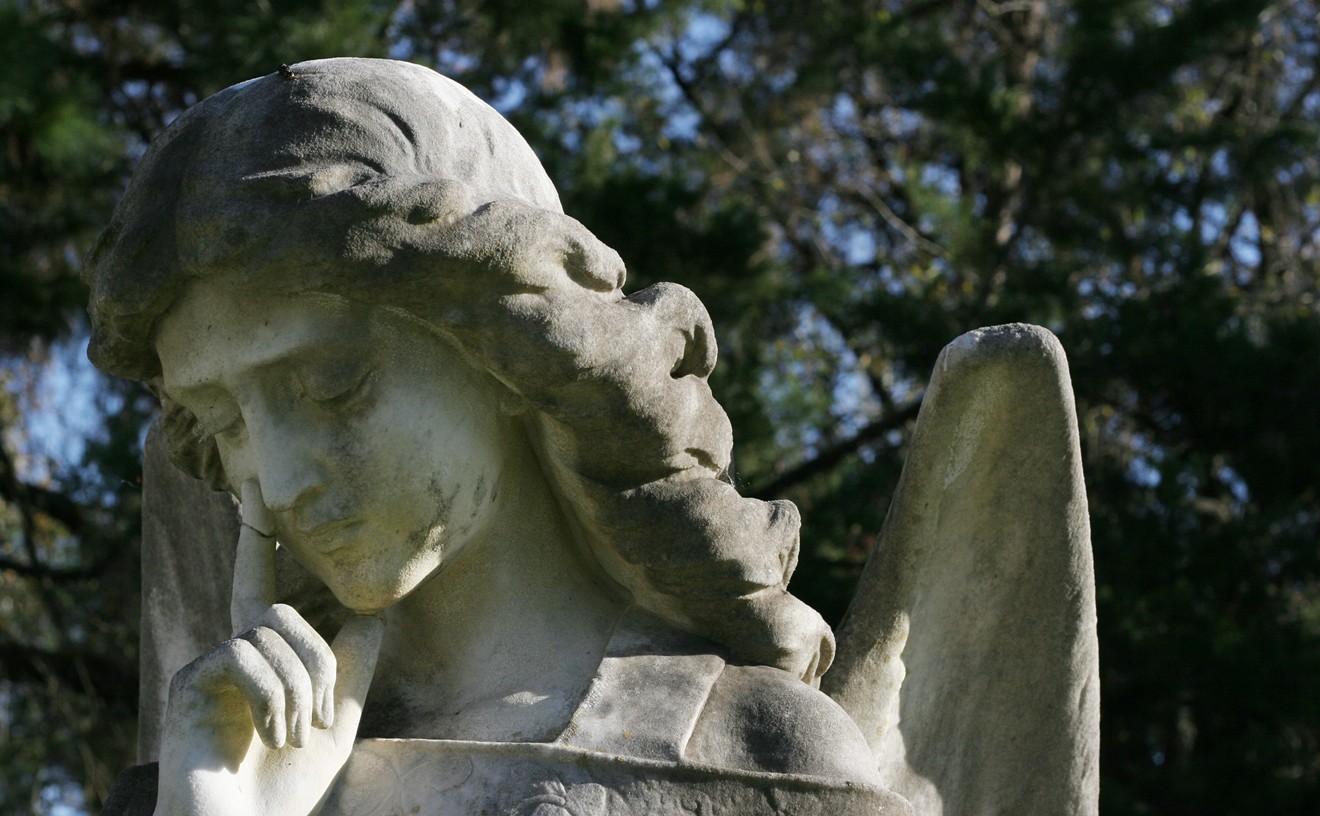As of this writing, the coronavirus COVID-19 has killed 44,234 people. That is more than died fighting in seven American wars, and by the end of April the number will almost certainly be larger than the causalities our soldiers suffered in both the Korean and Vietnam conflicts. In Texas, 477 have died, meaning that in the same time period more of our neighbors will have fallen to the virus than to Santa Anna’s troops in the War for Independence.
It’s not healthy for us to think of this epidemic as a war, even though President Donald Trump is happy to take on the mantle of war chief during the crisis. We’re framing this pandemic as a battle, and in doing so needlessly putting people at risk. Health care workers, delivery drivers, and grocery employees are not soldiers. They did not sign up for their professions expecting to be put in grave physical danger, and we certainly don’t reward them for that hazard with the sort of benefits that we bequeath to our veterans. Framing them as a front line simply makes it easier for us to expect them to die rather than be appalled at stories of them struggling to find proper protective equipment.
Unfortunately, Americans simply don’t have the mental space to consider this a public works endeavor rather than a conflict with winners and losers. We want to fight. Okay, then.
When this is all over there needs to be a memorial. There are already statues, plaques, and walls across the nation honoring moments in history when far fewer people died in the name of a fight. Why should the people falling here be any different? If we are truly going to anoint the essential workers out there punching clocks to keep us alive as heroes rather than non-consensual martyrs, then we should expect the more than a hundred medical professionals who have fallen caring for their patients infected with the enemy to be honored as such.
During the Vietnam War, there was a dedicated and insidious propaganda campaign happening. Conservatives, stung by the increasing failure in the region, were happy to paint the protests of the left as an attempt to undermine the conflict and destroy the American way of life. It worked, too. To this day the idea that hippies spit on returning soldiers remains an enduring conservative myth and proof of the left’s hatred of the troops despite the fact there is almost no evidence anything of the like ever occurred.
Right now, we are living in an ideological undermining of what we insist on calling a conflict. Mass, right-wing protests involving far-right extremists like the Proud Boys made the news last week, mostly as they claimed that state-mandated preventative orders were tyrannical attacks on their freedom. That’s not counting the recent spate of right wing terrorists targeting hospitals, such as happened in Missouri and Los Angeles. These people are egged on by the right wing media sphere, who have willingly spread misinformation and framed criticism of President Trump’s response as a political attack rather than something enabling the deaths of thousands of Americans.
Will these people become the enduring meme that the hippie spitter did? Will they be framed as an eternal blemish on one side of the political spectrum as it protested a war that killed so many more Americans than it had to?
I don’t know, but it should. All of this terrible time should be remembered. Walls should be inscribed with the names of the dead. Statues of doctors and nurses should be built. The service economy workers who have kept us all alive through this mess should be receiving everything from G.I Bill college age to free medical care, just as soldiers do. How about some medals? Why not, if we’re to frame this as a war?
We must remember this because it will happen again, and the body count will match battlefields then as well. We owe it to the people we make stand between us and death to plant something hard and concrete in the fields, something that cannot be easily ignored, so that we’re forced to ask ourselves if we’re doing enough for the next outbreak.
Support Us
Houston's independent source of
local news and culture
account
- Welcome,
Insider - Login
- My Account
- My Newsletters
- Contribute
- Contact Us
We’re Going to Need to Build a Memorial When COVID-19 is Over
Photo by Christine via Flickr
Angel statue in Glenwood Cemetery
[
{
"name": "Related Stories / Support Us Combo",
"component": "11591218",
"insertPoint": "4",
"requiredCountToDisplay": "4"
},{
"name": "Air - Billboard - Inline Content",
"component": "11591214",
"insertPoint": "2/3",
"requiredCountToDisplay": "7"
},{
"name": "R1 - Beta - Mobile Only",
"component": "12287027",
"insertPoint": "8",
"requiredCountToDisplay": "8"
},{
"name": "Air - MediumRectangle - Inline Content - Mobile Display Size 2",
"component": "11591215",
"insertPoint": "12",
"requiredCountToDisplay": "12"
},{
"name": "Air - MediumRectangle - Inline Content - Mobile Display Size 2",
"component": "11591215",
"insertPoint": "4th",
"startingPoint": "16",
"requiredCountToDisplay": "12"
}
,{
"name": "RevContent - In Article",
"component": "12527128",
"insertPoint": "3/5",
"requiredCountToDisplay": "5"
}
]


